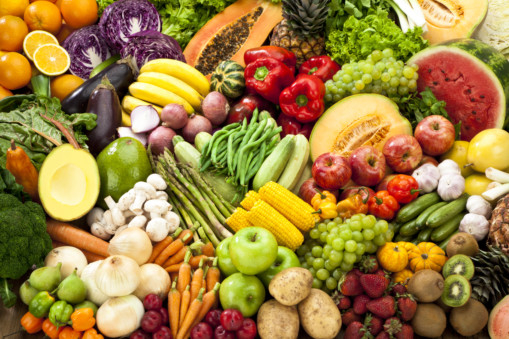
Dubai: With several food diets trending on social media amongst celebrities, influencers, and health gurus, many people are left confused about which food regime is best for them.
To pick the right diet, it’s advisable to see a nutrition expert and consult a doctor before making a drastic lifestyle change, Sirine Abu Zeineh – Nutritionist, Fitness Trainer, Health and Nutrition Blogger old Gulf News.
However, when choosing an eating plan or a new way of eating, individuals should also consider how maintainable the diet is.
“The word diet doesn’t mean that it is to be done only for a specific period of time. I recommend that the changes to be made should be considered as a long-term lifestyle change. This will allow the person to see the real benefits of the diet,” said Zeineh.
Initially, when changing eating habits, individuals will most likely see a drop in weight especially if they are going into a more restrictive lifestyle as many food items will be cut out. However, none of these diets (Vegan, Gluten-free, Raw diet, Keto, Paleo, Omnivore) are made for weight loss or guarantee weight loss, said Zeineh.
She pointed that what determines if a diet is healthy or good for weight loss is “nutritional value, portion sizes, and overall calorie intake.”
Almost all diets have their own food restrictions and require pre planning.
“Being omnivore means that all foods are available and the person has a wide range of options to pick from and a lower risk of missing out on nutrients than other diets. Vegan, Paleo, Gluten-free or Raw food diets are restrictive diets with guidelines that control what the person can and cannot eat,” explained Zeineh.
An individual must also consider the price tag that comes with some diets.
Diets that call for specific food items can be expensive in the long run. “While whole foods are not what rack up the bill at the grocery store, diet-approved replacements are expensive, such as: vegan cheese, gluten free pasta and so on,” said Zeineh.
However, these diet-approved replacements are not the only option. “Many things can be made at home from scratch and made in bigger batches. Individuals can also get their fresh produce from the market instead of the supermarket; cheaper meat cuts straight from the butcher,” added Zeineh.
She pointed out that it’s often difficult to single out a diet as the perfect food regime, simply because people’s bodies are different. “A recommendation should be made on an individual basis. I am a big believer in listening to your body. It’s important to eat everything in moderation and read about the diet prior to trying it out,” she said.
Zeineh also advised people to ensure they select a diet that would enjoy, highlighting that “food is pleasure and a medicine.”
“Long-term diets can teach you a lot about your body and what works for it and what doesn’t. They can also teach you what the best nutrient sources are, how to portion control and read labels, which are all skills that everyone should have. People who stick to diets and certain lifestyles have great self-control, which is also important to have around food,” she added.
Six trending diets
Vegan
It is a type of vegetarian diet that excludes meat, eggs, dairy products and all other animal-derived ingredients. Many vegans also do not eat foods that are processed using animal products.
Nutrition: The vegan diet is rich in fibre, magnesium, potassium and antioxidants. Dairy products and meats contain saturated fats so being vegan actually reduces the amount of saturated fats one consumes.
Advantages: Vegans tend to have lower cholesterol and blood pressure, which as a by-product means that they tend to have a lower risk of cardiovascular disease and type 2 diabetes.
Disadvantages: vegans will find it hard to consume calcium, vitamin D and B12, iron and protein leading to other health issues like weak bones and muscles. All these vitamins can indeed be obtained from plants but require strict monitoring to prevent health issues.
Omnivores
Nutrition: Omnivores have the whole spectrum of foods available to them, giving them access to all the vitamins and minerals they need. Having access to meat gives them an added layer of variation to provide them with a full choice of nutrient sources ranging from omega 3 fatty acids to beef products high in calcium and everything in between.
Advantages: With great care and moderation an omnivore can easily get every vitamin and mineral their body needs.
Disadvantages: people tend to have diets that are extremely high in saturated fats leading them to being overweight, having high blood pressure and high cholesterol.
Paleo or ‘primal diet’
It is aimed at keeping us healthy, strong and fit and avoid the chronic diseases of modernity. To do that, those following the Paleo diet eat like their ancestors. Paleo diet emphasises whole foods, lean proteins, vegetables, fruits and healthy fats.
Nutrition: Incorporating these in your diet will increase potassium level, which is important for blood pressure and muscle function.
Advantages: The lean protein in the diet will contribute to a healthy body composition and a lowered insulin response to foods, which in turn improves blood sugar and blood pressure levels.
Disadvantages: Paleo comes with the lack of grains and dairy products and the emphasis on meat. Calcium and vitamin D intake can be particularly low on this eating plan, which can be harmful to bone health. The diet also tends to be very low in carbohydrates, which could contribute to suboptimal performance for athletes.
Raw food
A raw food diet relies on uncooked fruits and vegetables, sprouted grains, unroasted nuts and seeds, seaweed, dried fruits, and beans
Nutrition: Individuals on this diet cut out nearly all processed food, sugar, alcohol and caffeine. Typically it’s also a low sodium diet. This diet is also considered high in fibre meaning that they feel full for longer, which can help you make healthy eating decisions throughout the day.
Advantages: The diet lowers your odds of developing chronic diseases like diabetes, heart disease, and cancer.
Disadvantages: A lot of fibre in the diet can lead to some uncomfortable bloating and gas. When trying to eat a lot of raw foods, you may also overdo it on the healthy fats, but you need to be careful as just because these foods may contribute to good health doesn’t mean they can be eaten all day. It’s also hard to get protein, not impossible, just needs some planning.
Gluten-free
A diet based on foods made from whole grains (and grain-like plants) that do not contain harmful gluten.
Nutrition: This diet only appropriate for a certain group of people and it’s those who have a gluten sensitivity or celiac disease- a condition that causes a negative reaction to gluten and results in damage to the intestines
Advantages: Those who try the diet can lose a good amount of weight being gluten free, but it’s an expected reaction to having to cut many food items out of the diet.
Disadvantages: Restricting gluten can have harmful health effects on people who don’t suffer from celiac disease, as it means a person reduces their intake of whole grains that are known to have cardiovascular health benefits.
Ketogenic
A Keto diet is an extremely strict one that follows specific guidelines - 25-35 grams of carbohydrates a day (this is about the equivalent of an apple). The rest of the day is made out of around 5% protein and 70-80% fat.
Nutrition: While it was first used in clinical settings as part of treatment for epilepsy, the purpose of the Keto diet is to switch our bodies from using carbohydrates for fuel to using ketones instead. When the person’s diet is very low on carbohydrates, fat is broken down and ketones are formed by the liver then burned for energy instead of glucose.
Advantages: The Keto diet can help reduce insulin levels and inflammation, increase the consumption of healthy fats in the diet and can be a great way to detox from sugar.
Disadvantages: It’s a hard diet to follow and maintain and leads to a reduction in the amount of fibre consumed. Healthy individuals who are curious about the diet should read about it and feel free to give it a go, however it is not a sustainable way of life or fat-loss.













